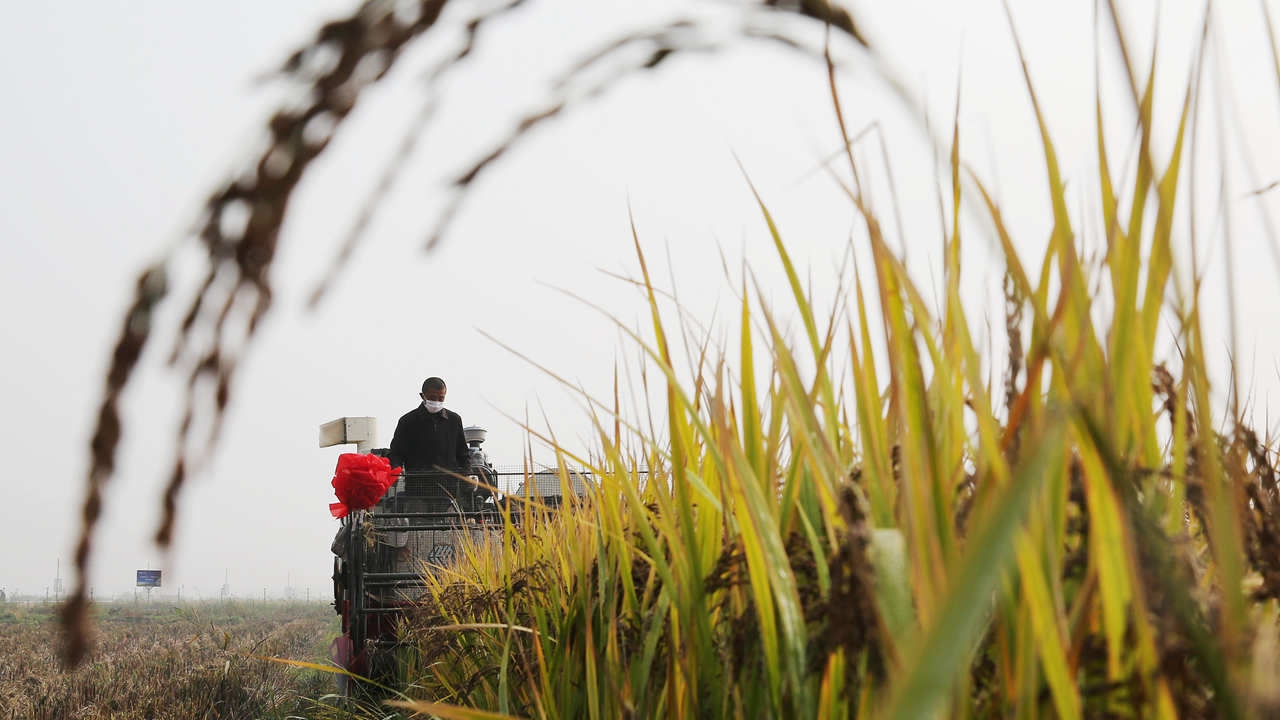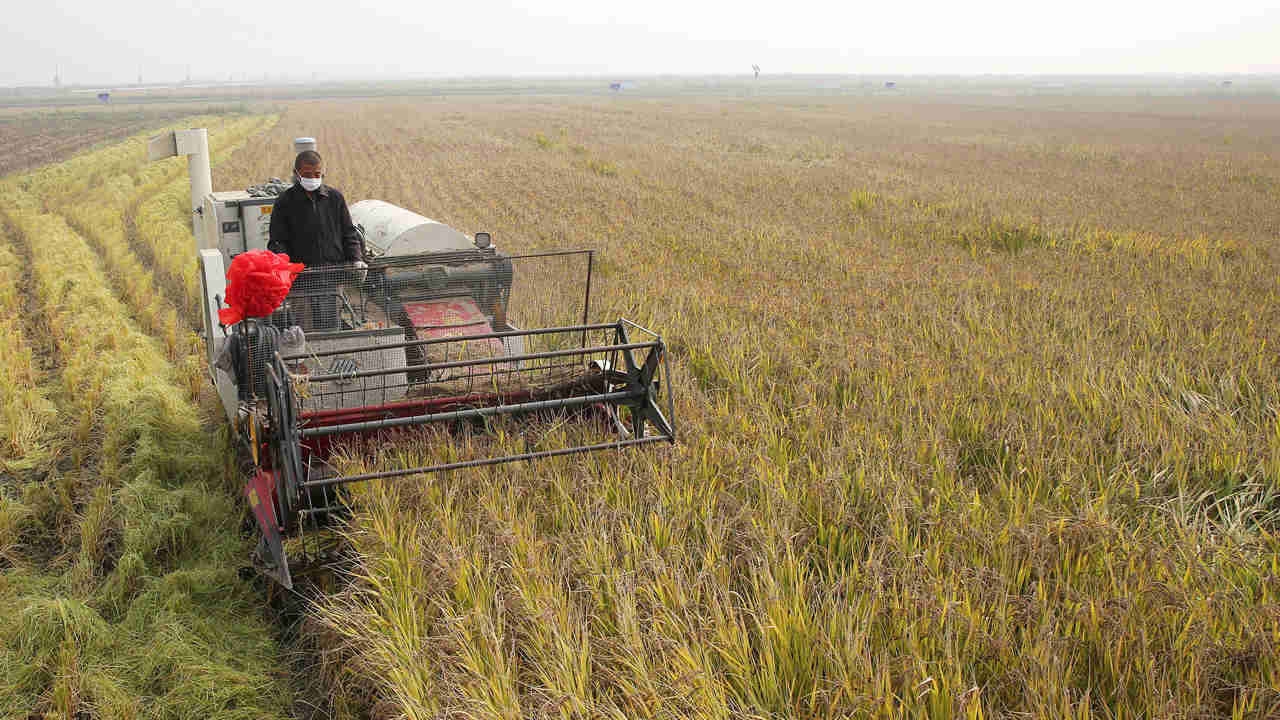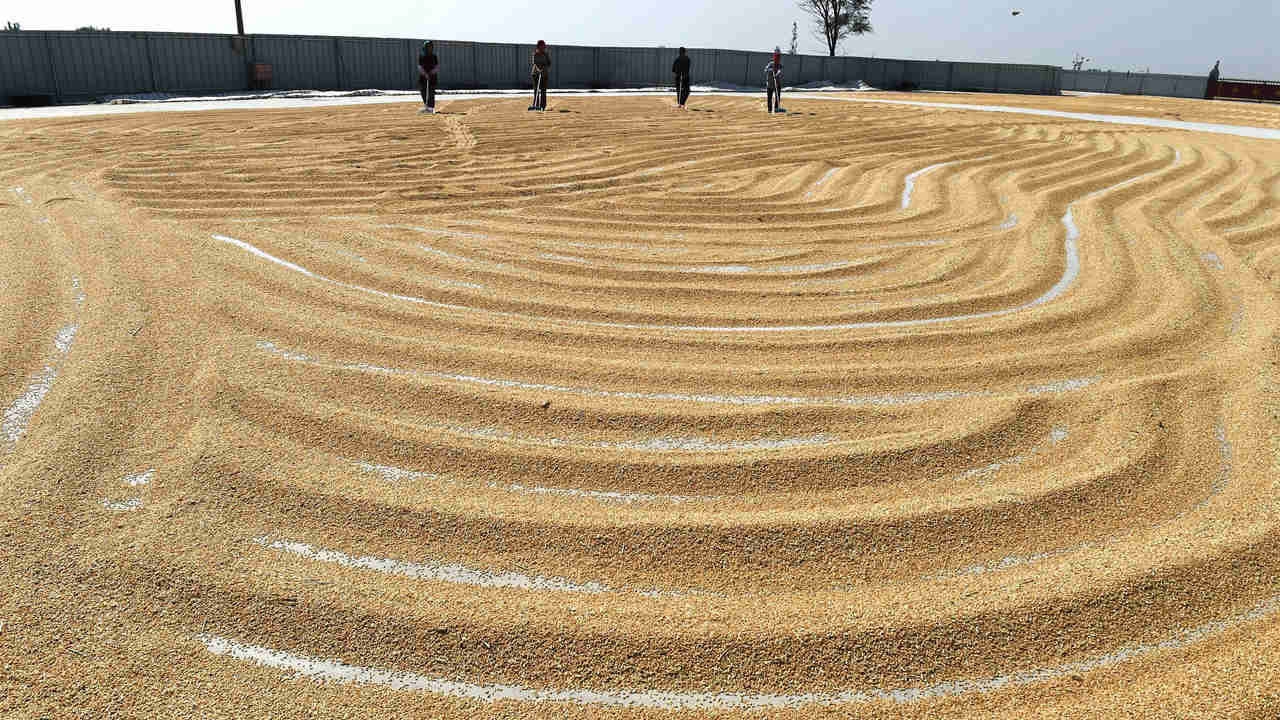
Business
18:59, 09-Oct-2017
Technical progress in agriculture benefits Chinese people
By CGTN’s Jin Yang

Chinese President Xi Jinping, also general secretary of the Communist Party of China (CPC) Central Committee, calls innovation the soul of a nation's progress and an inexhaustible source of prosperity. Chinese scientists' new technology development in the fields of irrigation and cultivation of crops will likely prove to be a great benefit to the Chinese people.
An 86-year-old scientist and his team have been working in the field of agricultural science and technology for six years with that spirit of innovation in mind. The team has already transformed more than eight million acres of once saline land into fertile soil.

Bohai granary /VCG Photo
Bohai granary /VCG Photo
Li Zhensheng, an academician at the Chinese Academy of Sciences, went to his lab each morning for nearly six years to inquire about the breeding of the latest generation of salt-tolerant wheat.
"The general secretary says food is the first necessity of man. Chinese must carry their bowls with their own food," Li said.
When Xi was vice president, he visited Li before the 2011 Spring Festival. Li gave him a report on the transformation of China's saline land and Xi asked the scientist to make sure that the research was carried out. After six years, Li chose the most difficult area to conduct the research: three provinces and one city near Bohai Bay.
Li gave the area a hopeful name: the "Bohai granary." He and the research team made many innovations, focusing on solving the three major problems of soil, breeding, and irrigation.
In 2013, this major agricultural science and technology project involving 260 million people and about 1.1 million square kilometers of land was officially established. Also in the same year, Li met with the president and general secretary Xi Jinping for the second time and reported on the progress of the project.

Bohai granary /VCG Photo
Bohai granary /VCG Photo
To implement the project, the Ministry of Science and Technology, the Chinese Academy of Sciences and the local government jointly invested 430 million yuan to support Li’s team. However, some of the farmers firmly opposed some of the innovative technologies.
"Experts from the Chinese Academy of Sciences suggested saline surface water irrigation. I thought it was absolutely impossible,” said Bai Shanqing, villager at Nanpi County, Hebei Province.
To convince the farmers, Li spent time rushing around the fields and eventually gained their confidence.
"The general secretary said that science does not have national boundaries, but scientists have the motherland to innovate for. Science and technology serve the country and benefit the people," Li stressed.
Over five years, the wheat yield increased from 50 kilograms per acre to 165 kilograms per acre, and the Bohai granary technology demonstration project became a national strategy in 2016. Now, the Bohai granary has reached its first target of increasing production to three billion kilograms.
208km

SITEMAP
Copyright © 2018 CGTN. Beijing ICP prepared NO.16065310-3
Copyright © 2018 CGTN. Beijing ICP prepared NO.16065310-3